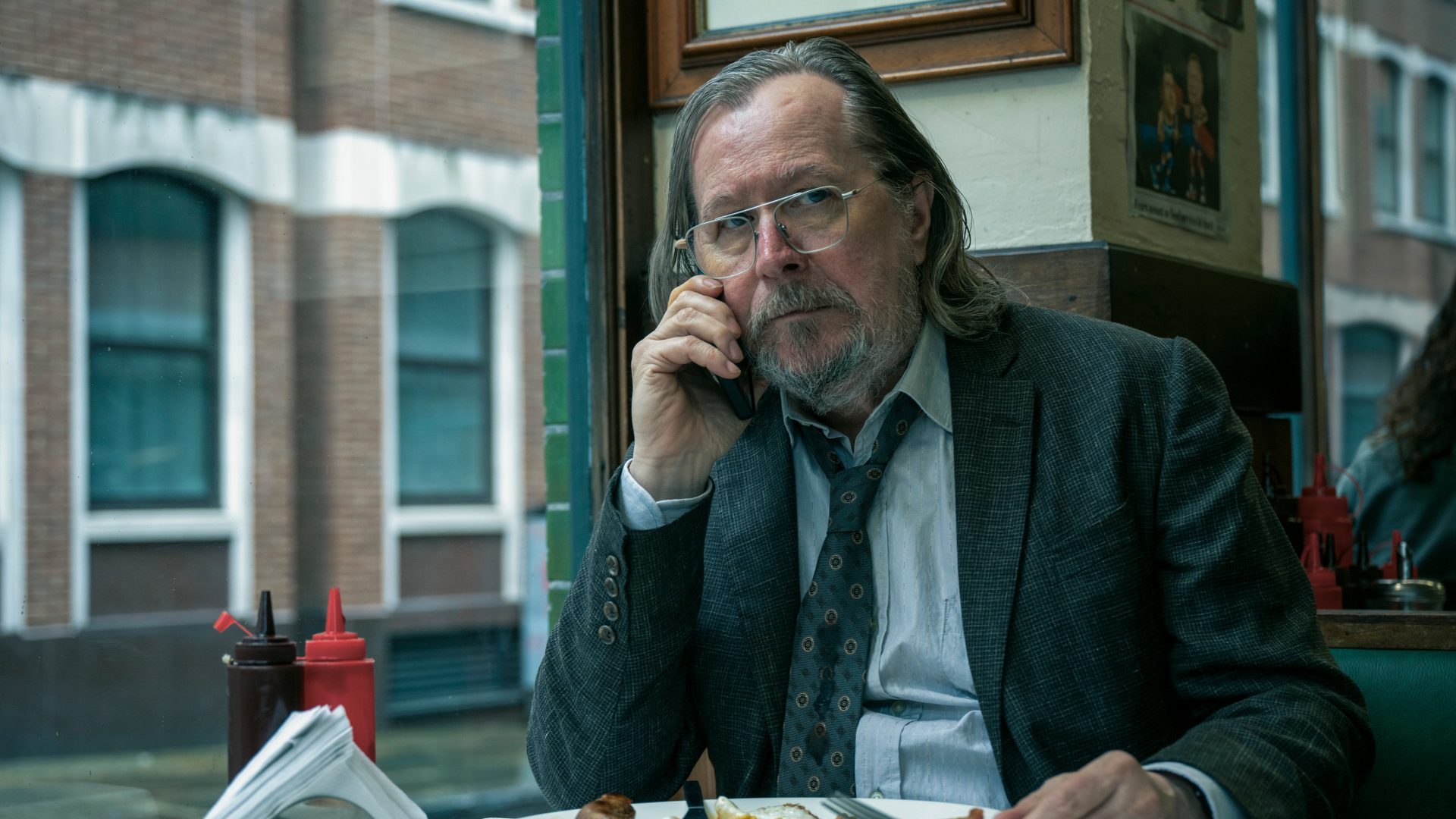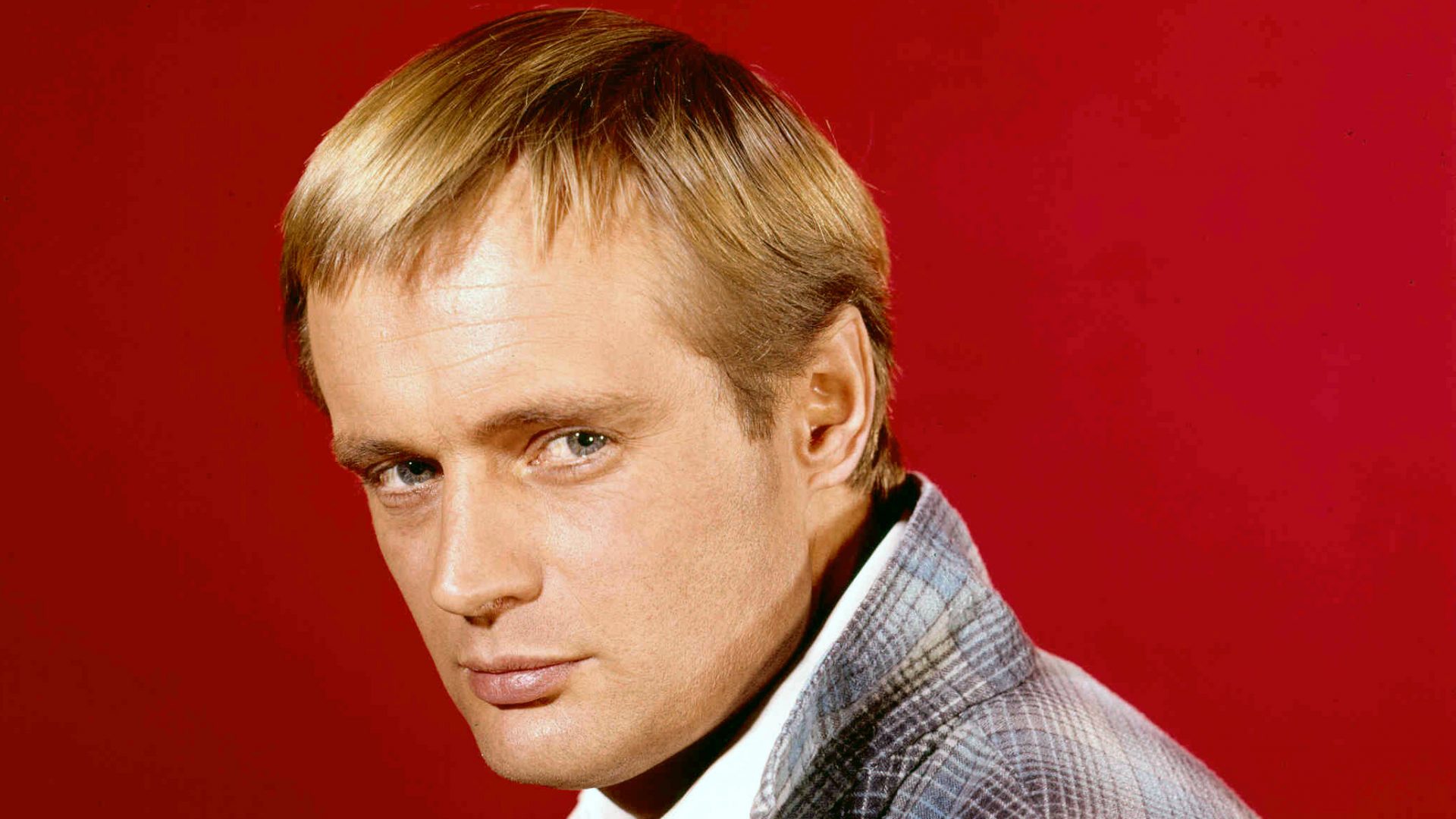PICK OF THE WEEK
Slow Horses (Apple TV+, September 24)
Though it launched as recently as April 2022, Will Smith’s magnificent adaptation of Mick Herron’s spy thriller series already feels like an absolute fixture of the televisual universe. The quality of the source material (Clown Town, the ninth instalment, has just been published) and the terrific cast, led by Gary Oldman as the flatulent Jackson Lamb, simply meshed like stars aligned.
The setting of the fifth season, based on Herron’s London Rules (2018), is a bitter mayoral contest in the capital between incumbent Zafar Jaffrey (Nick Mohammed) and populist challenger Dennis Gimball (Christopher Villiers). A terrorist atrocity, in which 11 people die, presents Lamb’s team of MI5 misfits, exiles and losers at Slough House with an escalating campaign to bring London to its knees.
This time, and to great comic effect, the limelight falls on in-house hacker Roddy Ho (Christopher Chung), who, to the bafflement of his colleagues, appears to be dating a beautiful new girlfriend, Tara (Hiba Bennani). “Nothing raises my Spidey-Senses as much as hearing a woman is happy to spend time with you,” says Lamb.
As so often, the shabby and reliably unpleasant spymaster has a point. Roddy is the sort of clueless tech nerd who dances in the street while listening on his headphones to Robert Palmer’s “Simply Irresistible” and will declare without irony: “I have many noms de guerre: Clint Wolf, Dragon Slayer, the human tripod, the true king of Gondor.”
It is the taciturn JK Coe (Tom Brooke), lurking in his hoodie, who spots the pattern of the attacks, rooted in a classic destabilisation strategy: “Attack the village, disrupt the transport, seize the media…” and so on. Which puts him well ahead of the security service’s top brass – “First Desk” Claude Whelan (James Callis) and his exasperated deputy, Diana Taverner (Kristin Scott Thomas).
Lamb’s exchanges with Taverner – “I’ve got so much dirt on you I could start an allotment” – continue to be a highlight. Jack Lowden returns as River Cartwright, fretting about his beloved grandfather David (Jonathan Pryce), a revered veteran of the service now laid low by dementia. Aimee-Ffion Edwards is excellent as his fellow agent Shirley Dander, struggling with bereavement and a cocaine habit.
Though the books sprang from the feverish aftermath of 7/7, they, and the series they inspired, have become a pitch-perfect accompaniment to the shabbiness, disillusionment and gallows humour of post-Brexit Britain. As Taverner explains: “Moscow rules, watch your back. London rules, cover your arse.”
A sixth season has already been made – the first without Smith at the helm – and Apple TV+ launches its adaptation of Herron’s Zoë Boehm series, Down Cemetery Road, starring Emma Thompson and Ruth Wilson, on October 29.
THEATRE
The Lady from The Sea (Bridge Theatre, London, until November 8)
The modernisation of Ibsen has great allure for audacious directors. In 2024, Matt Smith excelled in Thomas Ostermeier and Florian Borchmeyer’s version of An Enemy of the People; earlier this year, Michael Grandage directed Ewan McGregor in Lila Raicek’s My Master Builder, set in the Hamptons.
Now it is writer-director Simon Stone’s turn in this powerful reworking of Ibsen’s 1888 original. Far from the Norwegian fjords, the drama unfolds in the Lake District home of neurologist Edward (Andrew Lincoln) and his writer wife, Ellida (Alicia Vikander, making her UK stage debut). Along with Edward’s daughters Asa (Grace Oddie-James) and Hilda (Isobel Akuwudike), they are marking the birthday of his first wife who took her own life in a quarry.
A distant cousin, Heath (Joe Alwyn), is visiting – in search of a definitive diagnosis for a neurological condition – as is Lyle (John Macmillan), Edward’s best friend. Ellida is recovering from a miscarriage, but her apparent frailty is cast aside when she learns that her former lover and fellow eco-activist Finn (Brendan Cowell), has been released after a long stretch in prison.
Vikander enacts this shift in agency with grace and panache, while Lincoln is no less impressive as his patriarchal position at the centre of the household is threatened by the elemental force of past passion. As so often at the Bridge, the set design (by Lizzie Clachan in this production) is almost a character in its own right: shifting from a minimalist white that suggests impermeable privilege to a watery darkness, emblematic of the primal chaos unleashed by Finn’s return.
Unlike Ibsen, Stone frames the play as a contest within Ellida rather than between men. Will she settle for a traditionally secure good life or risk all on a potentially extraordinary destiny?
Suggested Reading


David Bowie, the Great Curator
BOOK
Clint: The Man and the Movies, by Shawn Levy (Mariner)
Curiously, Clint Eastwood has been ill-served by biographers – to such an extent that, before this excellent account of his life and career, the most useful guide was the 1999 collection of interviews edited by Robert E. Kapsis and Kathie Coblentz.
Best-known for his definitive book on the Rat Pack, Levy has a sure touch and, crucially, pays as much attention to the later directorial work of the 95-year-old movie legend as he does to the two roles that made Eastwood a superstar: “The Man with No Name”, in Sergio Leone’s classic spaghetti Western trilogy, and “Dirty Harry” Callahan (“Do you feel lucky, punk?”).
It is astonishing to reflect that Eastwood, born in May 1930, was a child in the years described in John Steinbeck’s The Grapes of Wrath. His family was peripatetic, constantly moving on the Pacific coast, which encouraged the solitude and individualism underpinning his on-screen persona. “Having moved around and never getting to know too many people,” he has said, “you spend a lot of time alone.”
Not until 1959 did his break come when he was cast as Rowdy Yates in Rawhide, which ran until 1965. If that role established his immobile charisma as a leading actor, it was his directing debut, Play Misty for Me (1971), that set him on the path that he has followed to this day. Filmed near his hometown of Carmel-by-the-Sea in Monterey Counrty – where he would later serve as mayor – the movie taught him the virtue of frugality; not least because it ensured the independence that he valued above all else.
Having co-founded the Malpaso Company in 1967, he ensured that he could dictate his own path through the treacherous jungle of the entertainment industry; mindful always of cost and practicality. Famously, he often settles for a single take. After they made The Bridges of Madison County (1995) together, Meryl Streep said to him: “You know what I love? You used all my mistakes.”
Of the 40 films that Eastwood has directed, 19 have been made in this century – most recently, last year’s Juror #2 starring Nicholas Hoult. He has twice won Oscars for best picture and best director (for Unforgiven in 1993 and Million Dollar Baby in 2005). Though his stern features as mythical cowboy and cop are already etched upon Hollywood’s Mount Rushmore, his true legacy will be that of a single-minded and often inspired film-maker.
EXHIBITION
Theatre Picasso (Tate Modern, London, until April 12)
Hot on the heels of the British Museum’s fascinating exploration of Picasso’s work as a printmaker, Tate’s new exhibition sees the Spanish titan of modern art through the quite different lens of drama and “performativity”.
Curated by the American artist Wu Tsang and the Spanish writer Enrique Fuenteblanca and pegged to the centenary of The Three Dancers – one of Tate’s most treasured masterpieces – the show opens with a reel of Picasso dressed as Carmen, smoking away as he is filmed by Man Ray. The artist was indeed fascinated by the stage, wrote and directed his own play Desire Caught by the Tail (1941) and famously collaborated with the Ballets Russes. But Theatre Picasso is more intrigued by the blurred lines between the artist’s colossal persona and the crackling drama of his creativity.
Familiar works such as Girl in a Chemise (c. 1905), The Weeping Woman (1937) and Nude Woman in a Red Armchair (1932) are given fresh context in this compact study of the artist as showman. Henri-Georges Clouzot’s documentary The Mystery of Picasso (1956) is projected on a large screen and – ingeniously – Lucie Rebeyrol’s design is revealed to be a stage as well as a gallery. A must-see.
OBITUARY
RIP Robert Redford (1936-2025)
The best way to celebrate the great actor and director’s extraordinary life is to watch his movies. Forced to pick a classic, I would choose Sydney Pollack’s Three Days of the Condor (1975), in which Redford plays CIA analyst Joe Turner on the run: no movie better captured the paranoid grubbiness of post-Watergate America. Off the beaten track, Tony Scott’s Spy Game (2001) is no masterwork, but features Redford and Brad Pitt as mentor and agent – and winningly dramatises the passing of the torch from one matinée idol to another. Lions for Lambs (2007), which Redford also directed, is an underappreciated critique of the war on terror, with great performances by Tom Cruise, Meryl Streep, Andrew Garfield and the man himself, sifting edgily through the morality of America’s response to 9/11.




